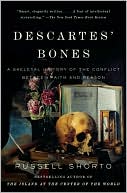Category Books
- Fiction Books & Literature
- Graphic Novels
- Horror
- Mystery & Crime
- Poetry
- Romance Books
- Science Fiction & Fantasy
- Thrillers
- Westerns
- Ages 0-2
- Ages 3-5
- Ages 6-8
- Ages 9-12
- Teens
- Children's Books
- African Americans
- Antiques & Collectibles
- Art, Architecture & Photography
- Bibles & Bible Studies
- Biography
- Business Books
- Christianity
- Computer Books & Technology Books
- Cookbooks, Food & Wine
- Crafts & Hobbies Books
- Education & Teaching
- Engineering
- Entertainment
- Foreign Languages
- Game Books
- Gay & Lesbian
- Health Books, Diet & Fitness Books
- History
- Home & Garden
- Humor Books
- Judaism & Judaica
- Law
- Medical Books
- New Age & Spirituality
- Nonfiction
- Parenting & Family
- Pets
- Philosophy
- Political Books & Current Events Books
- Psychology & Psychotherapy
- Reference
- Religion Books
- Science & Nature
- Self Improvement
- Sex & Relationships
- Social Sciences
- Sports & Adventure
- Study Guides & Test Prep
- Travel
- True Crime
- Weddings
- Women's Studies
Descartes' Bones: A Skeletal History of the Conflict Between Faith and Reason » (Reprint)

Authors: Russell Shorto
ISBN-13: 9780307275660, ISBN-10: 0307275663
Format: Paperback
Publisher: Knopf Doubleday Publishing Group
Date Published: August 2009
Edition: Reprint
Author Biography: Russell Shorto
RUSSELL SHORTO is the bestselling author of The Island at the Center of the World and a contributing writer at the New York Times Magazine. He lives in Amsterdam.
Book Synopsis
A New York Times Notable BookSixteen years after René Descartes' death in Stockholm in 1650, a pious French ambassador exhumed the remains of the controversial philosopher to transport them back to Paris. Thus began a 350-year saga that saw Descartes' bones traverse a continent, passing between kings, philosophers, poets, and painters. But as Russell Shorto shows in this deeply engaging book, Descartes' bones also played a role in some of the most momentous episodes in history, which are also part of the philosopher's metaphorical remains: the birth of science, the rise of democracy, and the earliest debates between reason and faith. Descartes' Bones is a flesh-and-blood story about the battle between religion and rationalism that rages to this day.
The New York Times Book Review - Gary Rosen
Making the case for one or another historical moment as the starting point of modernity is a familiar hook for writers of grand chronicles…Russell Shorto's Descartes' Bones is a smart, elegantly written contribution to this genre. For Shorto, the pivot upon which the old world yielded to the new was the genius of Descartes, the philosopher who gave us the doubting, analytical, newly independent modern self. The Frenchman's most famous phrase, "I think, therefore I am," may strike our own ears as a coffee-mug cliche, but in the 17th century it was a revolutionary declaration. Shorto's achievement is to complicate this picture, and with it our understanding of modernity, by also describing the religious context of the philosopher's ideas.
Table of Contents
Subjects
 All Religion
All Religion  General & Miscellaneous Religion
General & Miscellaneous ReligionNonfiction
 Philosophy
Philosophy  European & American Philosophy
European & American PhilosophyNonfiction
 Philosophy
Philosophy  General & Miscellaneous Philosophy
General & Miscellaneous PhilosophyPhilosophy
 European & American Philosophy
European & American Philosophy  French Philosophy
French PhilosophyPhilosophy
 General & Miscellaneous Philosophy
General & Miscellaneous Philosophy  General & Miscellaneous
General & MiscellaneousReligion Books
 All Religion
All Religion  General & Miscellaneous Religion
General & Miscellaneous ReligionChristianity
 Christianity
Christianity  All Religion
All ReligionNonfiction
 Religion
Religion  All Religion
All ReligionReligion Books
 Christianity
Christianity  All Religion
All Religion
